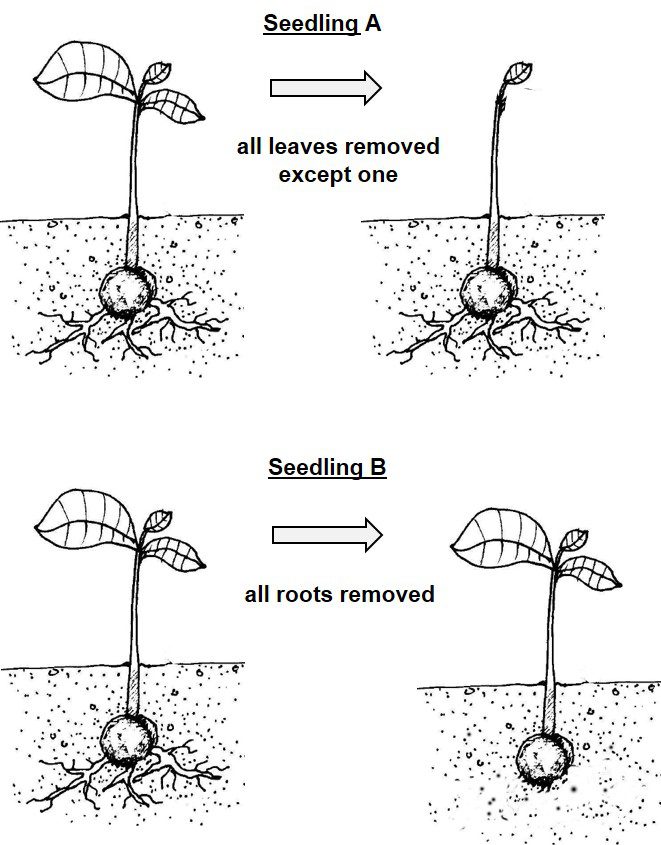
By Marcus Goh and Adrian Kuek
Multiple-choice questions (MCQs) are one of the most deceptive types of questions in any paper, and especially so for Science. On the surface, it seems easy since the answer is technically already there. However, since the answer is already provided, MCQs are often incredibly tricky. Students need to be alert and meticulous if they wish to score full marks in the MCQ section.
Of course, students must already have the content knowledge necessary to understand and answer the questions in order to do well. For the Science MCQ section, here are several techniques to ensure that you select the correct answer.

1. Don’t neglect the diagrams
Students often focus so much on the keywords of the question that they neglect the diagrams. While focusing on keywords is necessary, some MCQs require students to interpret diagrams as they contain additional information (for example, whether the quantity of a particular substance is more or less). This visual information needs to be synthesised with the textual information before the student can arrive at the correct answer.
2. Revision of concepts is as important as doing practice papers
At this point, many students will be rushing to complete as many practice papers as possible. They do this to gain exposure to as many different types of questions as possible. While the adage “practice makes perfect” still holds, doing practice papers should not come at the expense of revision of concepts.
The reason is that students need to be clear about Science concepts in addition to seeing the different ways they can be tested. Clarity of knowledge is just as important as trying out as many different types of questions as possible, so don’t focus on one at the expense of the other.
3. Do practice papers from 2014 onwards
Thanks to MOE syllabus changes, the Science PSLE from 2014 onwards is significantly different from earlier years. Many concepts are no longer tested, so students should not waste time memorising facts that won’t be tested in the exam. Parents who purchase practice papers for their children should ensure that those papers adhere to the current PSLE Science syllabus. This is important since some assessment books that claim to adhere to the “latest MOE syllabus” actually do not do so.
4. Download the 2014 MOE Science Syllabus
All subject syllabuses can be downloaded online, and this includes the one for Primary School Science. Although it’s a long document, parents should skim through it to have a good idea of what concepts and information are actually examinable in the PSLE. Some outdated information still appears in textbooks used by certain schools, even though they’re no longer tested.
One example is the knowledge of arteries, veins, and capillaries — this knowledge not longer required for the PSLE, so students don’t have to waste “memory space” learning this. This time spent can be better used on revising other concepts or doing more revision papers.

5. Use the process of elimination to discard irrelevant options
For MCQs which give choices that consist of different permutations, the process of elimination should be used to discard irrelevant options. In the example above, if the student knows that statement B is incorrect, they can immediately eliminate all choices that include statement B.
This process of elimination saves the student time from having to analyse every single option.
If students know their concepts well and follow these MCQ tips, scoring full marks for the Science MCQ section is easily achievable.
You should also read
[Education] Tips to ace open-ended Science exam questions
[Education] 5 ways to boost your child’s interest in science
This article was written for and first published on Yahoo Singapore’s Grade Expectations.
Grade Expectations is a weekly feature on education in Singapore. Expect fun activities, useful tips and insightful news on learning. It’s not just about your child’s grades — it’s about raising a great child!
Adrian Kuek runs Joyous Learning, an enrichment centre that specialises in English, Mathematics, Science and Creative Writing for Primary. He previously served as the academic director of one of Singapore’s largest enrichment centre chains for over seven years.
Marcus Goh runs Write-Handed, a creative writing studio. At the same time, he teaches English at The Write Connection. He has been a specialist tutor for English and Literature (Secondary) since 2005.
If you liked the article, follow me on Facebook and Instagram for more updates!
To get in touch with me, send an email!
Leave a Reply